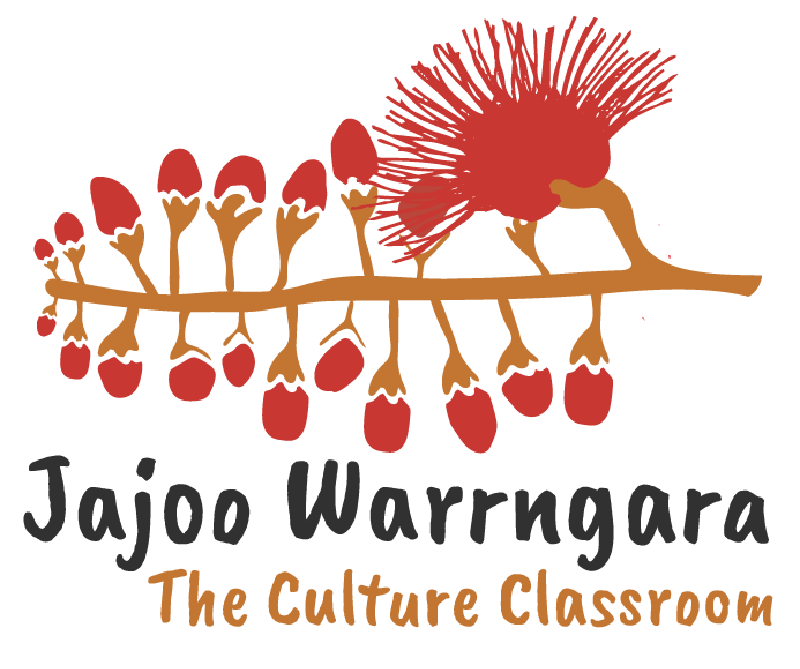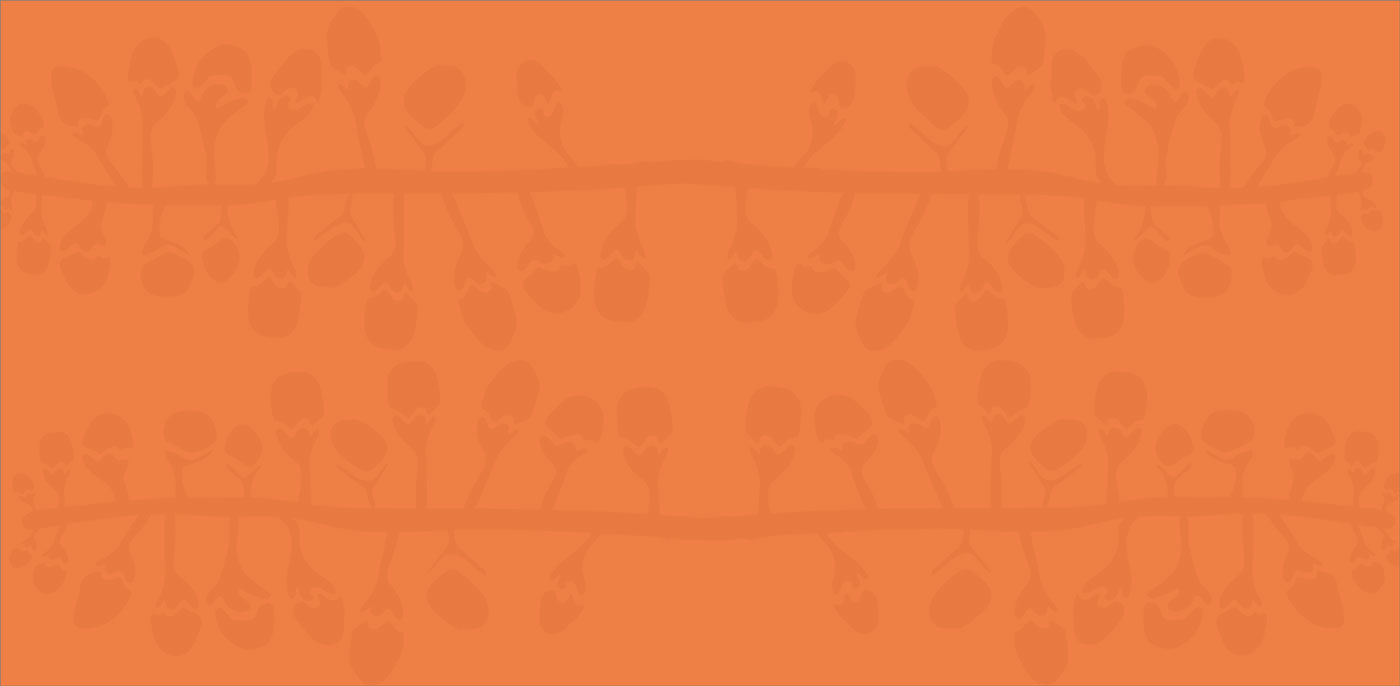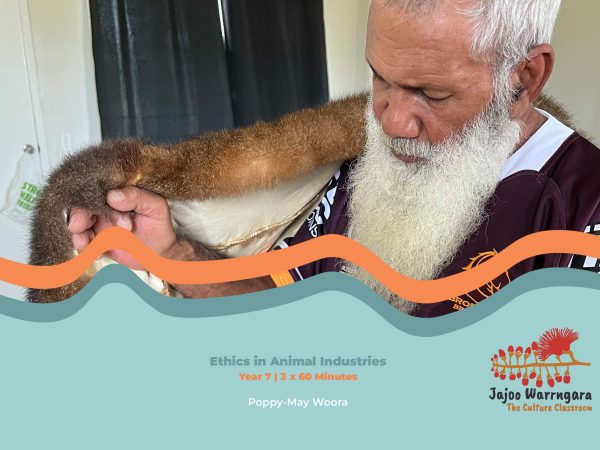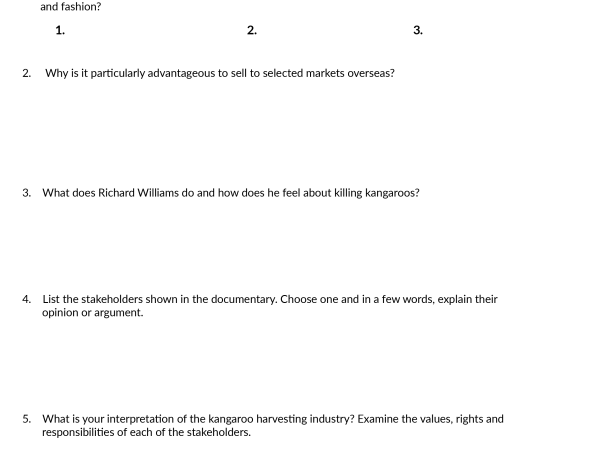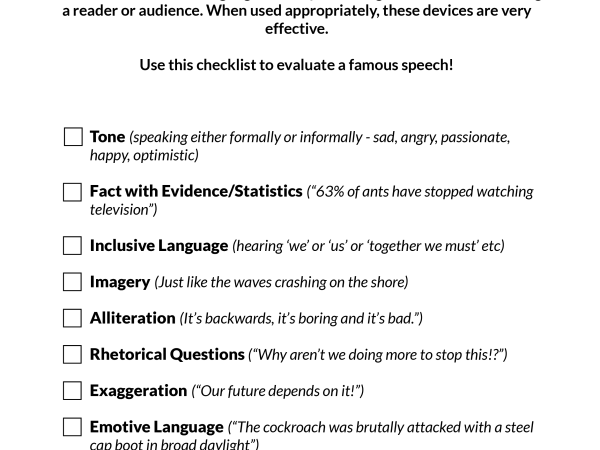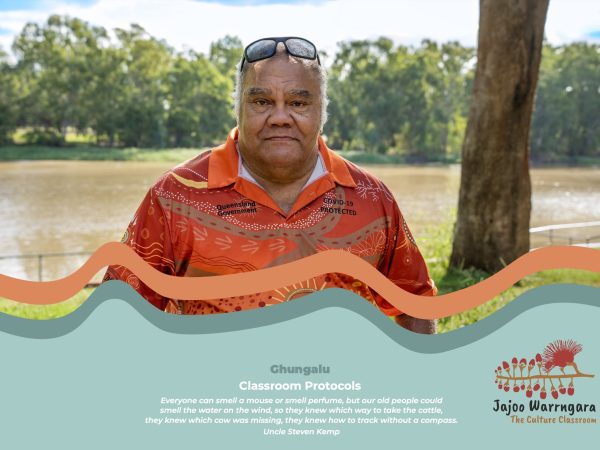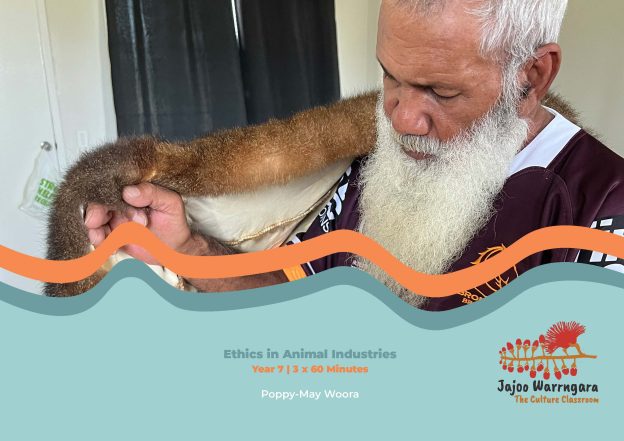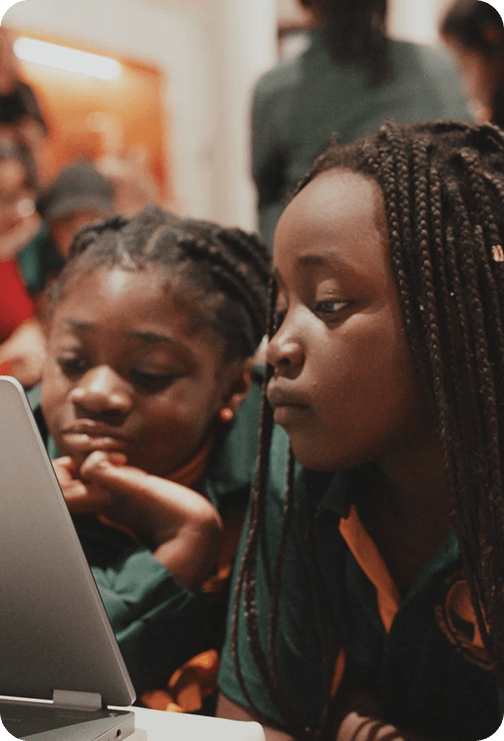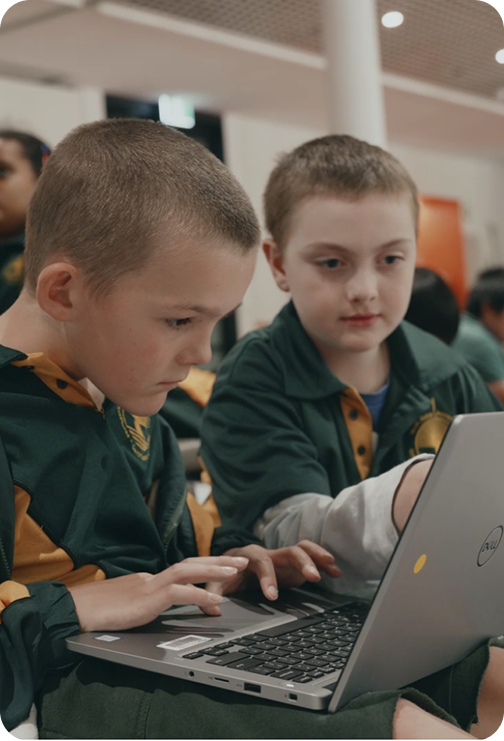AC9E7LE01 Identify and explore ideas, points of view, characters, events and/or issues in literary texts, drawn from historical, social and/or cultural contexts, by First Nations Australian, and wide-ranging Australian and world authors
AC9E7LE02 Form an opinion about characters, settings and events in texts, identifying areas of agreement and difference with others’ opinions and justifying a response
AC9E7LA03 Identify and describe how texts are structured differently depending on their purpose and how language features vary in texts
AC9E7LY02 Use interaction skills when discussing and presenting ideas and information including evaluations of the features of spoken texts
AC9E7LY06 Plan, create, edit and publish written and multimodal texts, selecting subject matter, and using text structures, language features, literary devices and visual features as appropriate to convey information, ideas and opinions in ways that may be imaginative, reflective, informative, persuasive and/or analytical
AC9E7LY07 Plan, create, rehearse and deliver presentations for purposes and audiences in ways that may be imaginative, reflective, informative, persuasive and/or analytical, by selecting text structures, language features, literary devices and visual features, and using features of voice including volume, tone, pitch and pace
